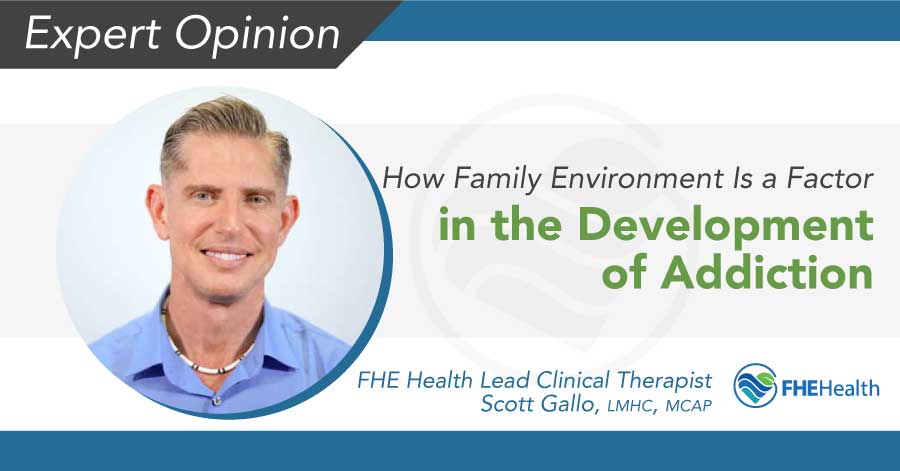
Families in the U.S. have been facing high levels of chronic stress for a while now, and, their exposure to acute stressors may have risen also recently, thanks to a dramatic rise in domestic violence. Coinciding with the era of restrictions on travel and social distancing, experts have recorded a 20 percent increase in the number of domestic violence calls globally, the BBC reported.
Such statistics are an introduction to how stress can affect the family and, in some instances, create conditions in which drug addiction can develop and even flourish. While it’s no secret that unhealthy family dynamics and stress within the household can cause addiction, the mechanism of how this happens is often harder to decode—and a source of concern and anguish for families affected by drug and alcohol abuse.
For a deeper understanding of the link between family-related stress and addiction, we sought the help of FHE Health’s Lead Clinical Therapist Scott Gallo, LMHC, MCAP, an expert on the topic. Gallo is a licensed mental health counselor and certified addiction professional. He received his Master’s degree in mental health counseling from Cambridge College, before completing graduate training at Harvard University’s School of Education in the field of human development and psychology. What Gallo had to say about stress in family environments and its causal connection to addiction—or lack thereof—may come as both a relief and a surprise….






